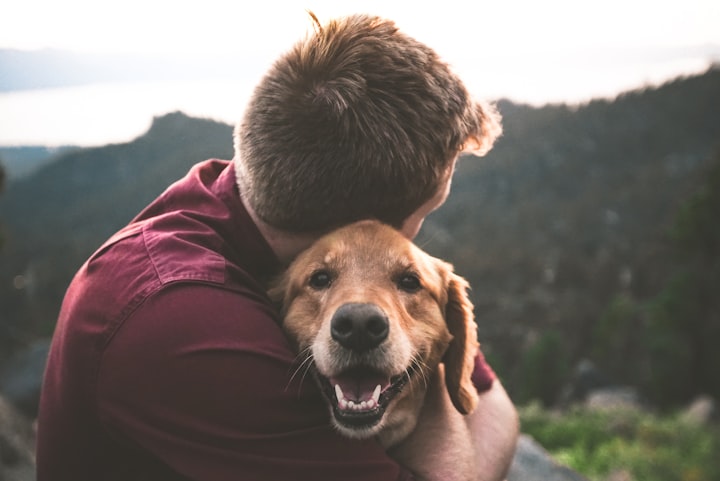The Importance of Oral Health for Dogs: How to Diagnose and Eliminate Problems
Tips for Preventing Dental Issues in Dogs and Keeping Them Healthy and Happy with Proper Oral Hygiene
Dogs are known as man's best friend, and with good reason. They are loyal, friendly, and provide companionship. But when it comes to taking care of them, we need to be aware of their health, particularly their oral health. Oral health is critical to a dog's overall well-being, as poor oral health can lead to a range of issues from bad breath and tooth decay to more severe conditions like infections and organ damage. In this article, we'll discuss the importance of oral health for dogs, how to diagnose oral health problems early, and steps you can take to prevent and eliminate them.
Why is oral health important for dogs?
Just like humans, dogs need to have healthy teeth and gums to maintain their overall health. When their teeth and gums are not healthy, bacteria can build up in their mouths, which can lead to infections and other health issues. The bacteria can also spread through their bloodstream, affecting their vital organs like their heart, liver, and kidneys. Therefore, good oral hygiene is essential to keep our furry friends healthy and happy.
>> Do THIS every morning to eliminate bad doggy breath<<
How to diagnose oral health problems in dogs?
Early detection is key when it comes to oral health problems in dogs. It's crucial to identify any potential problems as soon as possible, as it can make a significant difference in the treatment options and prognosis. Here are some of the signs to look for to identify oral health problems in dogs:
- Bad breath: While it's common for dogs to have a certain odor to their breath, persistent bad breath is a sign of an underlying issue.
2. Tartar and plaque buildup: Tartar and plaque buildup on the teeth can lead to tooth decay, gum disease, and other oral health issues.
3. Difficulty eating: If your dog is experiencing pain or discomfort while eating or refuses to eat altogether, it could be a sign of an oral health problem.
4. Red or swollen gums: Red or swollen gums can indicate gingivitis or other oral health issues.
5. Loose teeth: Loose teeth can be a sign of severe periodontal disease and require immediate attention.
>> 10s Morning Ritual eliminates bad doggy Breath
If you notice any of these symptoms, it's important to take your dog to the vet for a checkup. Your vet will perform a thorough examination of your dog's teeth and gums and recommend appropriate treatment options.
Steps to prevent and eliminate oral health problems in dogs:
- Regular dental checkups: Just like humans, dogs need regular dental checkups to maintain good oral hygiene. It's recommended to take your dog to the vet for a dental checkup at least once a year.
2. Brush their teeth: Brushing your dog's teeth is the best way to prevent tartar and plaque buildup. Use a toothbrush and toothpaste designed for dogs and brush their teeth daily. If your dog is resistant, start slow and gradually increase the time and frequency of brushing.
3. Provide dental chews and toys: Dental chews and toys are designed to help clean your dog's teeth and keep their gums healthy. Look for products that have the Veterinary Oral Health Council (VOHC) seal of approval.
4. Provide a healthy diet: A healthy diet is essential to maintain good oral health in dogs. Feed your dog a balanced diet with a mix of dry and wet food. Avoid feeding them table scraps and high sugar treats.
5. Water additives: Water additives can help reduce the buildup of bacteria in your dog's mouth, leading to better oral health. Look for products that have the VOHC seal of approval.
Conclusion:
Oral health is critical to a dog's overall well-being. Maintaining good oral hygiene can prevent a range of health issues and keep our furry friends healthy and happy.
Early detection is key when it comes to oral health problems, so it's important to take your dog to the vet for a dental checkup at least once a year and to look for signs of oral health problems like bad breath, tartar buildup, difficulty eating , red or swollen gums, and loose teeth.
To prevent and eliminate oral health problems, it's recommended to brush your dog's teeth daily, provide dental chews and toys, feed them a healthy diet, and consider using water additives with the VOHC seal of approval. By taking these steps, you can help ensure your dog has a healthy and happy life. Remember, a healthy mouth equals a healthy dog!
About the Creator
Luth Espindola
"Unlock a world of knowledge and explore new perspectives with every read. Join us now."







Comments
There are no comments for this story
Be the first to respond and start the conversation.